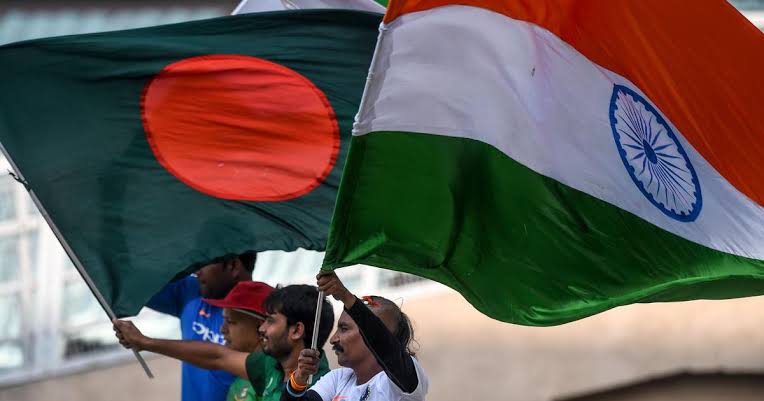Diplomatic Correspondent
Published:2025-07-24 08:03:16 BdST
ANALYSISIndia’s medical aid for jet crash victims marks a diplomatic opening
In a move that could ease months of strained ties, India’s swift offer of emergency medical assistance to Bangladesh following the Milestone College plane crash marks a significant moment of humanitarian diplomacy rising above geopolitics.
On 21 July, Indian Prime Minister Narendra Modi expressed condolences over the tragic accident in Dhaka’s Uttara that killed at least 32 and injured over 160—many of them children. PM Modi was the first head of government to reach out and extend help for the plane crash.
More importantly, New Delhi followed up with action. A specialized team of Indian burn care doctors and nurses will be arriving in Dhaka today to assess the condition of the burn victims and, where necessary, recommend further treatment in India.
The specialized team consists of Doctors and nurses arriving in Dhaka are from Ram Manohar Lohia Hospital and Safdarjung Hospital in Delhi, which are the two top hospitals in India specializing in burns and plastic surgery.
Depending on their assessment, additional medical teams may be dispatched. India's response stands out not just for its speed but also for its symbolism.
Since the July 2024 popular uprising that ousted the India-backed Awami League government, bilateral relations have plunged to historic lows.
Former Prime Minister Sheikh Hasina remains in political asylum in India, and Dhaka has openly questioned New Delhi’s past role in sustaining autocratic rule in Bangladesh. Against this backdrop, any gesture from India is bound to carry political weight.
Yet the Indian assistance now being extended appears to be driven more by humanitarian concern than strategic calculus. The victims of the crash—mostly schoolchildren and their teachers—have drawn widespread sympathy both at home and abroad.
India’s willingness to send medical professionals at such a sensitive time is not only a demonstration of its regional capacity as first res ponder for emergency response, but also a message: that despite political tensions, India recognises human suffering across borders.
Other countries, including Singapore and China, have also expressed willingness to send medical support teams, but India’s gesture carries particular resonance given its speed and the context.
This is the first direct, government-backed initiative between New Delhi and Dhaka since the regime change. It may serve as an opening—albeit a cautious one—for future engagement on less contentious issues like health, education, and disaster preparedness.
For Bangladesh’s interim government, accepting India’s aid is a test of diplomatic maturity. For India, this humanitarian outreach offers a way to begin resetting relations based on people-to-people empathy rather than power dynamics.
In the coming days, the focus must remain on saving lives. But beyond the hospital wards, this episode may quietly help shift the tone of Dhaka-Delhi ties—from confrontation to cautious cooperation.
The Milestone tragedy has broken many hearts, but it may have also cracked open a diplomatic door.
Unauthorized use or reproduction of The Finance Today content for commercial purposes is strictly prohibited.


